Nigeria
For Tolulope Akande-Sadipe, running for a second term as a member of parliament in Nigeria means putting her life on the line, says the 56-year-old politician who is running in the February 25 legislative elections in the southwest of Africa's most populous country.
On the same day, Nigerians will also elect their next president, Muhmmadu Buhari stepping down after two terms as stipulated by the constitution, and their senators. On March 11, they will choose their governors and local assembly members.
In the last election in 2019, Ms. Akande-Sadipe's campaign bus was destroyed and her press officers assaulted. For this election, she said she narrowly escaped an assault while campaigning against five men in her party's primary.
In Nigeria, "electoral violence is very real, and it targets me more because I am a woman," the MP from Oyo State told AFP. According to her, her opponents "think they can intimidate her" because she is a woman.
Africa's most populous country, the continent's largest economy, has many women in leadership positions in the private sector and on the international stage. But when it comes to elected office, they are underrepresented and very often sidelined.
In the current lower house, 13 of the 360 members of parliament are women, placing Nigeria 184th out of 190 countries in the world, according to a ranking by the Geneva-based Inter-Parliamentary Union (IPU). And the situation does not seem to be improving.
The number of women running in the 2023 elections has declined at almost every level: women are running for only 10 percent of local assembly seats, nine percent of national assembly seats, eight percent of Senate seats, and 6% of governorships.
Only one woman, Princess Chichi Ojei, is running for president on February 25, against 17 men. And she is far from being among the favorites, with Bola Tinubu of the ruling APC, Atiku Abubakar of the main opposition PDP, and the outsider Peter Obi of the Labour Party (LP).
- Patriarchy -
And yet, women have played a major role in the political construction of Nigeria, mobilizing against colonial rule and then during military dictatorships, according to Chiedo Nwankwor, a professor at the American Johns Hopkins University. But "once these movements succeeded, women were pushed aside.
The conservative cultural and religious system doesn't help women break into the political landscape, according to Mercy Ette, a Nigerian researcher at the University of Leeds who has studied female representation in the country.
"Even among the highly educated, patriarchy is very strong," said Akande-Sadipe.
The obstacles are immense, but that doesn't stop Khadijah Abdullahi Iya from wanting to become the next governor of Niger, a central state plagued by violence from criminal groups.
A position that no woman has ever held in the 36 states that make up the federal republic.
But according to this 48-year-old woman, "mentalities are changing" because "people are at a breaking point, and they feel that women have the necessary compassion, that they can heal their ills".
Insecurity is a crucial issue in the 2023 elections, as the country is plagued by violence from jihadists, criminals and separatists.
- Hope for change -
Campaign finance is one of the obstacles for female candidates.
"Women often don't have the money to get started, and very few men are willing to invest in their campaigns," according to Ette.
Last year, the male-dominated parliament rejected five bills aimed at advancing gender equality and women's representation.
"There is very little political will to change the status quo," Ibijoke Faborode, who runs ElectHer, a platform that supports young female candidates, tells AFP.
She believes, however, that "something has changed" with the "EndSARS" movement to protest against police violence, which broke out in late 2020 before being suppressed.
Among the main leaders were young charismatic women (lawyers, journalists, etc.) grouped in a "Feminist Coalition".
None of them is a candidate, but their commitment has given hope to many others.
Like Juliet Isi Ikhayere, a 28-year-old lawyer who is running for parliament.
At an event last month, she was called a "toddler" by a man in the crowd. It was the latest in a string of derogatory remarks she has faced throughout her campaign.



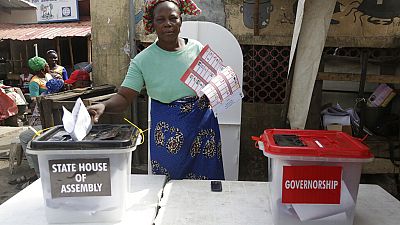

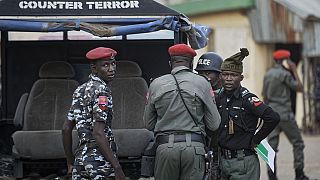
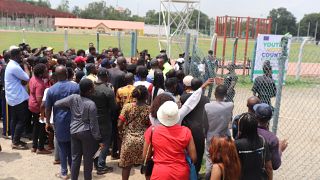


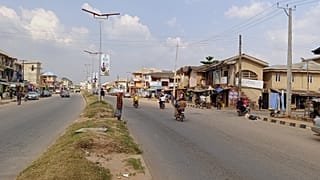
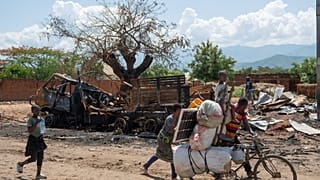
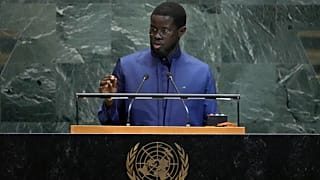
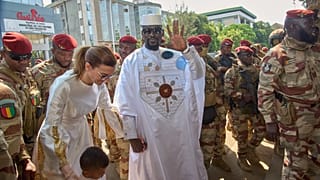
Go to video
Elections that kept power in the same hands: Africa 2025 in review
01:12
Central African Republic votes amid mostly peaceful election day
01:05
Ivory Coast vote count begins after divisive legislative elections
01:20
Ivorians head to the polls as divisions from Presidential vote linger
00:13
Ivory Coast opposition alleges voter data fraud ahead of elections
01:28
Guineans head to polls as Doumbouya closes campaign amid democracy concerns